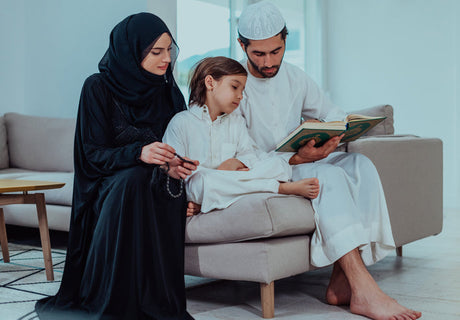Key Takeaways
-
Selfless Forgiveness: Reciting "Astaghfirullaha lil-mu'minina wal-mu'minat" extends your supplication to the entire Muslim ummah, not just yourself.
-
Spiritual Multiplication: Praying for others brings similar blessings to yourself, deepening your own relationship with Allah.
-
Ummah Connection: This dua promotes unity and empathy by spiritually linking you to your fellow believers.Ummah Connection:** This dua promotes unity and empathy by spiritually linking you to your fellow believers.
Meaning and Breakdown of the Phrase
The phrase "Astaghfirullaha lil-mu'minina wal-mu'minat" translates to:
"I seek forgiveness from Allah for the believing men and believing women."
Breakdown:
-
Astaghfirullah: "I seek forgiveness from Allah."
-
Lil-mu'minina: "For the believing men."
-
Wal-mu'minat: "And the believing women."
Virtues of Reciting This Phrase
Earning Forgiveness for Others
By seeking forgiveness not just for oneself but also for all believing men and women, you demonstrate concern for the entire Muslim ummah. This act of selflessness is highly rewarded in Islam.
Multiplication of Rewards
The Prophet Muhammad ﷺ taught that making dua for others brings similar blessings to the one making the supplication. By asking for forgiveness for others, you indirectly ask Allah to forgive yourself as well.
Unity of the Ummah
This supplication fosters love, empathy, and a sense of unity among Muslims, as you are spiritually connected through your prayers for one another.
Connection to the Quran
"And ask forgiveness for your sins and for the believing men and believing women."
(Surah Muhammad, 47:19)
This verse emphasizes the importance of collective forgiveness, aligning perfectly with the spirit of the phrase.
Recommended Practice
Reciting "Astaghfirullaha lil-mu'minina wal-mu'minat" regularly, especially during moments of dua or after prayers, is a beautiful way to purify your own soul and benefit others in the ummah.
Practical Applications for Daily Life
For Working Professionals
Recite this phrase quietly on your commute or during short breaks. It’s a simple yet profound habit to spiritually reconnect throughout the day.
For Parents Managing Multiple Responsibilities
Involve your children in saying this dua before bedtime. Explain that it's a way to show love for all Muslims, teaching empathy early on.
For Students and Lifelong Learners
Repeat this dua during study breaks to reset your intention and seek barakah in your learning, while remembering others in your prayers.
Frequently Asked Questions
Q: Why is it important to pray for other Muslims in your supplications?
A: Praying for others reflects selflessness and a deep love for the ummah. It aligns your heart with the prophetic tradition of caring for fellow Muslims and builds a collective spirit of mercy, empathy, and unity that strengthens communal bonds in Islam.
Q: Is there a basis for this phrase in the Quran?
A: Yes. Surah Muhammad (47:19) includes a command from Allah to seek forgiveness for oneself and all believing men and women, making this dua firmly rooted in scripture.
Q: When should I recite this supplication?
A: You can say it anytime—after prayers, during dua, or even in moments of reflection. It is especially powerful when made during quiet spiritual moments.
Q: Can children recite this dua too?
A: Absolutely. It is a beautiful and easy way to teach children about empathy and community through supplication.
Q: What are the benefits of making dua for others?
A: When you make dua for others, angels say "Ameen, and for you as well." It not only benefits them but also multiplies your own rewards.
This article was written by Sheela M. Ahmed, founder and owner of AlHiqma, blending traditional Islamic teachings with contemporary Muslim experiences. Since establishing AlHiqma in 2018, she has been dedicated to helping Muslim families strengthen their connection to faith through authentic Islamic lifestyle education grounded in values from the Quran and real-life applications.
We want to hear from you! Do you have a family tradition around making dua for others? How do you teach your children the value of selfless prayers? Share your stories with the AlHiqma community on our social media platforms. Your experiences inspire and support other Muslims on their journey toward deeper faith.












